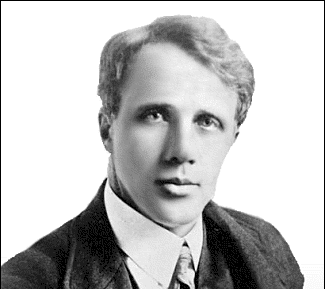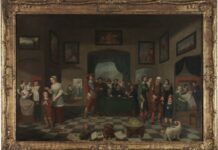Robert Frost, one of America’s most cherished poets, captivates readers with his profound and contemplative poetry. Among his celebrated works, “Stopping by Woods on a Snowy Evening” stands out for its simplicity and depth. This poem, often associated with the iconic line “miles to go before I sleep,” invites readers to reflect on the journey of life, the allure of nature, and the commitments that shape our paths. In this article, we delve into the significance of Frost’s journey, exploring its themes, symbolism, and enduring appeal.

Full Text of “Stopping by Woods on a Snowy Evening”
Whose woods these are I think I know.
His house is in the village though;
He will not see me stopping here
To watch his woods fill up with snow.
My little horse must think it queer
To stop without a farmhouse near
Between the woods and frozen lake
The darkest evening of the year.
He gives his harness bells a shake
To ask if there is some mistake.
The only other sound’s the sweep
Of easy wind and downy flake.
The woods are lovely, dark and deep,
But I have promises to keep,
And miles to go before I sleep,
And miles to go before I sleep.
Understanding “Stopping by Woods on a Snowy Evening”
“Stopping by Woods on a Snowy Evening” was published in Frost’s 1923 collection “New Hampshire.” The poem describes a traveller who stops to admire the beauty of snow-covered woods on a winter evening. The tranquil scene contrasts with the traveller’s obligations, encapsulated in the repetition of the line “And miles to go before I sleep.”
Themes and Symbolism
Nature and Solitude
Frost’s depiction of the serene, snow-laden woods conveys a sense of peace and solitude. The traveller’s pause to appreciate nature’s beauty highlights the human need for reflection and tranquillity amid life’s hustle.
Duty and Responsibility
The repeated line “miles to go before I sleep” underscores the theme of duty. Despite the allure of the peaceful woods, the traveller recognises the obligations and responsibilities that await. This line resonates with readers as a metaphor for life’s journey, reminding us of the commitments that must be honoured.
The Journey of Life
The journey in the poem symbolises the broader human experience. The traveller’s contemplation and subsequent decision to move forward reflect the choices we make and the paths we take in life, often balancing personal desires with societal expectations.
Frost’s Unique Style
Robert Frost’s poetry is renowned for its conversational tone, vivid imagery, and layered meanings. In “Stopping by Woods on a Snowy Evening,” Frost’s use of simple language and natural imagery creates an accessible yet profound piece, inviting readers of all ages to find personal significance in its lines.
The Enduring Appeal
The poem’s enduring appeal lies in its universal themes and the emotional resonance of its concluding lines. Frost’s ability to encapsulate complex emotions in a few stanzas makes this poem a timeless reflection on human existence, drawing readers back to its lines generation after generation.




